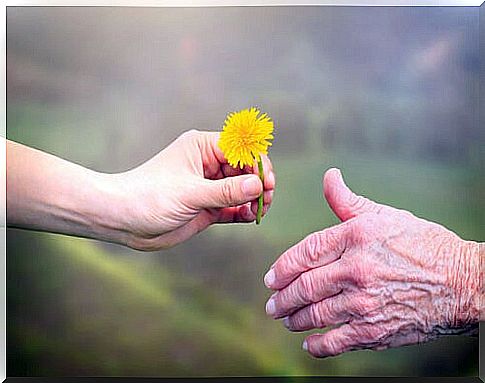5 Habits To Be More Pleasant With Others

There are many people who are convinced that you don’t need to be nice. Surely you have ever said the phrase to yourself: “what will it cost this or this to be more pleasant”. The truth is that even the most introvert needs to be appreciated by others and acting as if nothing is needed from anyone only has negative consequences.
Being more pleasant with others facilitates relationships, integration in the group, reduces stress levels and even helps to have a more pleasant environment for everyone, including oneself. Even if you are here for a few parties, being nice helps you improve your mood and feel better.
Why you should be nicer
Nice people are always surrounded by other nice people, they have an active social and family life and their opinion and way of being is remembered whenever something needs to be celebrated or something interesting organized. Her social skills allow her to have healthy relationships and to always be able to count on others when she needs them.

In the professional field, pleasant people are those who have the best relationships with colleagues and clients or users and those who have the greatest opportunities to expand their professional expectations. They are also the ones who enjoy their work the most and, therefore, the ones who accumulate the least stress and feel the most satisfied with themselves.
How to be nicer to others
We can all always be a little nicer. Incorporating certain habits into the way you act will help you be more pleasant and improve your relationships with others.
Don’t be a smarty guy
Smarties tend to be very unpleasant people. Nobody likes people who speak knowing everything about everything, as if they are in possession of the absolute truth. And, even if that’s the case, if you want to be nice you should be moderate when it comes to speaking. If they ask you, answer, of course, but with the intention of giving the answer they are requesting, not with the intention of demonstrating your wisdom.
In this sense, avoid getting into the conversations of others by sentencing truths and dictating advice. If you think you can help, quietly join the conversation, ask the right questions, and make suggestions to help others ask you.
In all situations, if you really want to say what you know or what you think, do it in a way that makes others feel good about themselves, without making them look bad and showing you are willing to help whoever needs it.
Don’t let your resentments out
Many people bring to light completely inconsequential arguments or situations in a conversation, things that are irrelevant or that are out of place at a certain moment. If you don’t want to appear obnoxious, don’t bring up your resentments. A conversation is not an excuse to leave anyone bad.
Nice people don’t earn the admiration of others by berating others or by letting their problems or negative feelings surface. Nice people are claimed by others precisely because with them the famous saying “where there is trust is disgusting” has no place.
Do not make others the target of your outbursts or bring up personal issues that affect you emotionally, not even when they have to do with the conversation, much less if they are not directly related.
Be patient and listen to others
Even if you don’t like the conversation or what people are saying seems boring or superficial, be patient and let them talk. Do not imply that the situation displeases you or seem bored.

Many people find that another has a pleasant conversation simply because they let them talk and simply ask questions that, in addition to showing their interest, encourage them to continue talking. There is no way to look good with hardly any effort better than this.
This does not mean that you have to put up with it all. On the contrary. You can take advantage of any apology to subtly withdraw and, in the future, try to avoid those situations. The key is not to be noticed that you are running away. Nobody said that being nice was always easy.
Give compliments and observe the good things in others
People like people who pay attention to detail and are generous with compliments. Smiling at people when you see them, greet them effusively, ask about something you know they care about or highlight some detail of their appearance are always good resources to be liked.
When you notice and make positive comments about them, people tend to subconsciously remember that you said something positive about them, even if they don’t remember what, which makes you seem more likeable.
On the other hand, when you consistently genuinely smile at people, they come to the idea that you are a nice person, even if they don’t know you well or have only heard about you.
Be generous
There are many ways to be generous. What’s more, generosity does not always imply a financial issue. In any case, generosity shows a genuine concern for others and a clear involvement in the situation.

Whenever you can, offer more than they asked for. If it is a business relationship, you can give a little more product, a little more time, be less strict with the conditions of the offers or make some kind of propaganda gift. Be especially generous with children. Any little detail is always welcomed by adults.
Ask, asking in moderation also makes us pleasant because we make others feel useful. Also, when someone evaluates whether or not to do something for us, to maintain their cognitive coherence, they need to think that we deserve it.
That we are good enough to deserve it. It is an indirect way of gaining value for other people, as long as we make it clear, in moderation. Because if he ends up not doing us favors, we will get just the opposite, that his thinking tends to think that we are bad to justify him for not helping us.









